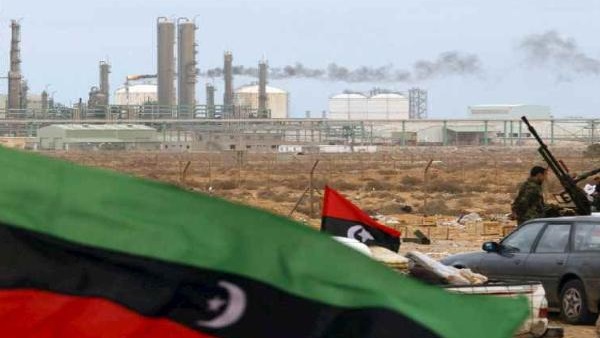Asmaa Al-Batakoshi
A report by the Middle East Institute (MEI) has revealed how the armed militias in Libya are fighting primarily over money, aided by the corruption of Fayez Al Sarraj’s government.
The report, written by Jason Pack, a scholar at the Middle East Institute and Founder of Libya-Analysis LLC, shed the light on the role of corruption as a key driver of violence, as opposed to merely its byproduct.
The high-level debate on Libya at the UN General Assembly (UNGA) in late September and the proposed follow-on international conference to be hosted by Germany in October or November are the perfect opportunities to correct this oversight, according to the report.
“Ultimately, accumulated oil revenue is the source of Libya’s wealth, but it is distributed in various ways, all of which are subject to abuses,” Pack added in the report.
Moreover, certain armed groups have further cemented their dominance over specific sectors of the Libyan economy. For example, one of Tripoli’s most important commanders, Emad al-Trabelsi, has capitalized on the fighting to consolidate his stranglehold over the economically important western suburbs.
Inputs and the outputs are subsidized in Libya; Farmers receive a subsidy for their tomatoes, but the water, the electricity, and the petrol that farmers use in producing the tomatoes are each highly subsidized as well.
The price of the Libyan tomato to the consumer may well be less than one-tenth what it costs to produce, according to the report.
Nevertheless, since the Libyan economy ministry does not study matters in this way, the actual production costs of all goods in the Libyan marketplace are usually unknown.
What is known though is that Libya is likely the most subsidized country on earth, although it is not included in the World Bank’s data on the subject, and the subsidies are baked into the way in which Libya’s economic institutions relate to one another and hence cannot easily be quantified monetarily.
These institutions receive pots of money from the Central Bank of Libya (CBL) or have a right to receive subsidized or free goods. Libya’s institutions frequently lack transparent balance sheets and operate in a vacuum, outside of market pricing.
The National Oil Company (NOC) purchases refined petroleum abroad and uses subsidiaries to distribute it at vastly discounted prices inside Libya.
Militias usually seize this petrol and smuggle it abroad to sell at a huge profit. Most Libyan petrol deliveries never arrive at a genuine filling station — this is termed the ghost petrol station phenomenon.
Petrol, electricity, and food subsidies are only some of the examples of how subsidies affect Libyan economic life. The true extent of the problem remains unknown by even the most senior Libyan technocrats and external academics and experts.
The report further warned that the letter of credit fraud relies on the gap between black-market and official rates of exchange.
Typically, an individual will apply to import goods, be allocated foreign exchange by the CBL at the official rate of 1.3 or 1.4 Libyan dinars per dollar, but will then exchange the foreign currency on the black market for the going rate of around 4-8 per dollar, doubling or tripling his money even after paying the bribes needed to secure the initial letter of credit.
Given the opportunities for enrichment offered by obtaining a letter of credit, the decision-making process at the CBL is structurally susceptible to bribery or coercion from the militias who physically control Tripoli.
Such temptations to gain preferential access will exist so long as the black-market and the official rate of the dinar differ, Pack said in his report.
Germany’s proposed conference on Libya should focus not only on the familiar topic of the support that disruptive foreign patrons give to their local proxies in violation of the UN arms embargo, but also on the frequently overlooked fundamental economic drivers of the conflict.
The German conference and the preceding UNGA discussion of Libya should hone in on how internationals can help the CBL float the dinar and the government eliminate subsidies immediately.
At present, the militias can always block change by raiding their offices or kidnapping their officials, deterring potential economic reformers. The international community has never provided effective assistance to facilitate economic reforms and protect reformers. The upcoming UNGA discussions and proposed international conference should formulate concrete plans on how to do both.
“Surely, the way forward requires empowering ordinary Libyans to demand change,” the report said. “Although there are many ways smuggling can be tackled, experience from other countries suggests that only by eliminating the border price differential can it be truly stopped.”







































admin in: How the Muslim Brotherhood betrayed Saudi Arabia?
Great article with insight ...
https://www.viagrapascherfr.com/achat-sildenafil-pfizer-tarif/ in: Cross-region cooperation between anti-terrorism agencies needed
Hello there, just became aware of your blog through Google, and found ...